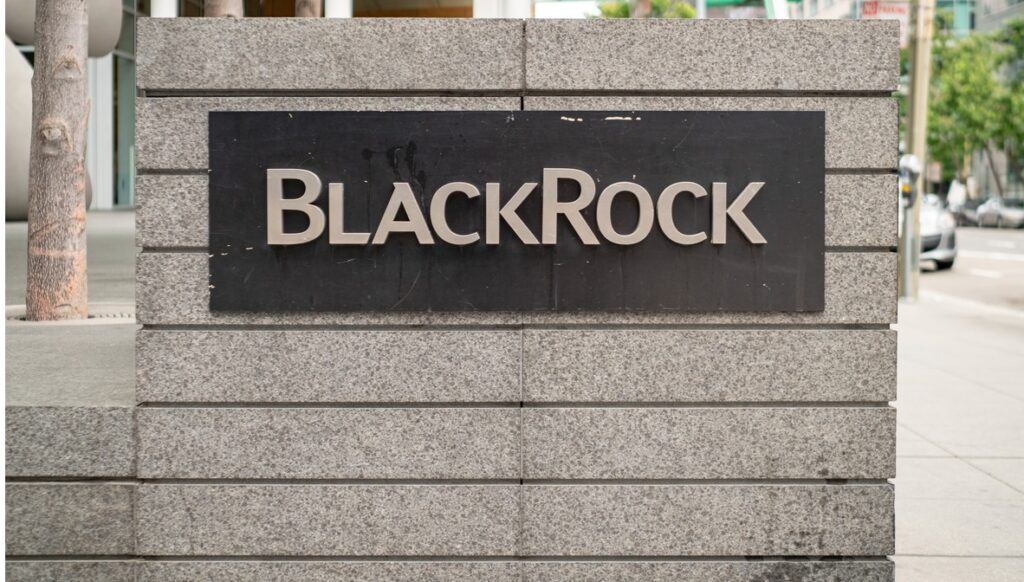Josh Dibbens is UK Head of Marketing at BlackRock, the world’s largest asset manager. In this exclusive interview with the Financial Services Forum, he explains what that market position means for BlackRock’s brand, what BlackRock stands for and which marketing channels it is finding most effective.
FSF: How would you characterise the overall marketing and brand strategy at BlackRock?
Josh Dibbens: BlackRock’s purpose is to help more and more people experience financial wellbeing. We do this by partnering with our clients and by being a fiduciary to their assets, whilst helping them construct resilient portfolios. Through providing investment solutions and working to build better outcomes, we are helping millions of people build savings and making investing easier.
We manage a number of brands that bring this purpose to life every day. Our corporate brand mission is focused on demonstrating how we drive societal impact through the retirement and wealth plans that we manage, and the investments we make into local economies. The BlackRock investment brand, iShares ETF brand and Aladdin technology brand are the engines that drive our growth, and the entities that build trust in us as a portfolio provider. Our aim with these different businesses is to build brand equity through awareness and preference for our key ETF, Active, Alternatives and Technology franchises.
By operating as One BlackRock and bringing our global insights and thought-leadership together, we can offer more choice and options to our clients to help them with their portfolio needs.

How has your marketing strategy been impacted over the last few years?
Broadly speaking, the challenges of the last few years haven’t substantially impacted our brand strategy. If anything, companies that lead with purpose and that are clear about how they serve stakeholders tend to win more business and trust from clients. BlackRock has been leaning into its purpose through building a stronger culture with employees; partnering more closely with suppliers; and, making sure it delivers for clients.
Any impact we might have experienced has largely been felt within our channel marketing plans, due to changing client preferences. We saw with the COVID pandemic how quickly marketing had to react to millions of people suddenly staying at home and working virtually. Outdoor and Print Advertising became almost obsolete, and there was a huge premium put on being able to connect with clients through mobile and digital platforms. We believe these channels and platforms are very much here to stay, as we readjust to a post pandemic world of hybrid working and digital interfaces.
What are your marketing plans for the next 12 months?
In the short-term, given the continued market volatility, we need to stay focused on helping clients navigate complexity. Producing regular thought-leadership, which allows clients to better understand how they can position their portfolios to weather uncertainty, is key. Considering the right marketing mix is also critical. We continue to test and learn about clients’ changing preferences, as we look to deepen those relationships through digital channels and branded experiences.
Longer-term, we’re focused on building both societal and professional trust with clients. Demystifying Asset Management and its role within society is important to promote a better understanding of what investing is, and how it contributes towards creating a growing and resilient economy. We will continue to invest in our corporate brand by telling the stories of how we put capital to work and how that creates jobs; supports communities; and helps clients achieve their retirement goals. On the Investment side, we will also continue to support our key business divisions by promoting new product launches, and priorities such as transition investing and the growth of private markets.
Which channels are you finding most effective to get your message across?
I’d point out:
• Our website – We’ve seen a +200% increase in web visits in 2020 & 2021, reflecting how important this digital “shop window” has become.
• Email engagement – Though we already had a strong lifecycle marketing programme embedded within BlackRock, during the pandemic we saw open rates reaching +60% in some instances. This was reflective of clients wanting to hear from us about what the markets were doing and allowed us to build more personalised relationships with them.
• Virtual events – The change in client preferences towards more virtual experiences has been unprecedented. Even in 2022, whilst some clients have been keen to do more face-to-face events, the appetite for virtual has not diminished. This new reality of online events has allowed brands to build more curated experiences around clients, and gather better data points than they would have in a physical environment.
• Social media – Across Linkedin and Twitter we saw video engagement rates up to 4 times benchmark, in some instances, which was just incredible. The ability to build robust targeting models on these platforms has really helped improve client engagement.
That said, we are aware of the need to keep BlackRock front of mind with clients, as their needs evolve and markets change. That ‘mental availability’ and associations of BlackRock as an industry leader are what drives them to want to visit our website, attend our events, and open and read our content. For this reason, we are mindful of the important role more traditional broad reach media channels must play in keeping the top of the funnel “fully loaded”.

What role is marketing viewed as having in BlackRock’s overall success?
Marketing is seen as an engine for growth across BlackRock. For 30 years BlackRock has created a professional brand known for its breadth of products, capabilities, and solutions. It has built and reinforced multiple brands Including BlackRock, iShares, and Aladdin, which have contributed to its overall success. As each of these brands offer different services and solutions, Marketing has played a critical role in how they are positioned with different target audiences. Marketing has also played a pivotal role in ensuring the brand acts local in the countries it operates in. This “always-on” focus on local client needs has helped the firm become one of the largest Asset Managers in the world.
When we consider how rapidly the investment landscape is changing and how future trends – such as transition investing, consolidation, and the rise of the end-investor – are disrupting our industry, the role of Marketing becomes even more important to building successful Asset Management brands.
What are the brand pros and cons of being the world’s largest asset manager?
From a Marketing standpoint, one of the main benefits of being the largest Asset Manager in the world is that clients want to hear from us. They want our analysis, research, views, and opinions on markets. They seek help navigating uncertainty and complexity, and that is why BlackRock is an Asset Manager sought after in volatile times. Our size also means a wide breadth of capabilities, which for some larger institutions is important – as having a partner with this size and scale is critical to finding better solutions for their clients across multiple regions.
In terms of challenges, I’d note that size can lead to scepticism from segments of society who believe that big equals bad. BlackRock has a very large book of assets under management. However, it is crucial to note that the money we mange is not ours, but rather our clients’. BlackRock has a fiduciary duty to help clients invest based on their strategic objectives and to provide choice and solutions on how to do that in the best possible way.
How important do you think brand is in the asset management space?
Brand is a critical component for any company, as it can help create the environment for commercial activity to thrive. Within the Asset Management industry, and over the years, products have increasingly become more commoditised. Therefore, brand is critical as a key differentiator. A great example is the ETF space. These products are almost identical, therefore investing in what makes a brand different is key. In BlackRock’s case, the iShares brand stands for something unique which is to be “Champions of investor progress” – this value proposition shows the drive to innovate, explore and always be on the cutting edge of new solutions for clients.
The BlackRock brand, at its heart, is about partnership. That is the strategic anchor that we use to deliver on our purpose. So, when we think about activation of our brand – the products, services, and experiences we create – partnership is at the heart.
How has the boom in retail investment impacted marketing?
Over the last two years there has been an estimated 30 million retail investment accounts opened in the US. As we see this trend proliferate worldwide, Marketing becomes much more important when trying to connect with and build a brand with the end-consumer. As Investing becomes more democratised, and new forms of digital platforms appear, it’s important that providers look to build strong relationships with these new retail investors.
Asset Managers have a responsibility to support end-consumers when choosing new investment products. Ensuring they have all of the right education and tools to make those decisions is key. Again with ‘partnership’ as the driving force in the way we operate, BlackRock has been working closely with partners who have end-investor relationships to help create educational content, experiences and thought-leadership to build confidence and financial literacy.

